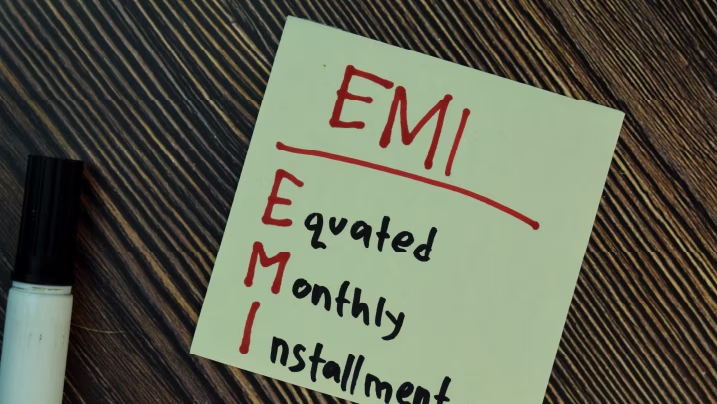Understanding The Personal Loan Recovery Process
personal loan
Summary: Are you worried about loan collections? IDFC First Bank guides you through the process and provides support and flexible solutions to manage your loan recovery.
Personal loans are one of the most viable solutions for urgent financing needs. But paying on time is a top priority to avoid financial burdens. Fines may be imposed if installments are late, and if the delay is too long, the bank may have to take necessary measures, such as loan recovery procedures.
If the borrower fails to pay the loan on time every month, the bank sends a collection agency to collect the remaining amount from the borrower. To recover loans quickly, there are debt recovery guidelines in the Banking Law. Let us understand the action in the article below.
What is the personal loan recovery process?
Instant personal loans can be easily obtained in just a few minutes, but repaying them on time is always a top priority. However, borrowers sometimes find it difficult to pay the same monthly installments and banks are forced to take necessary measures. If you miss one or two installments, usually the bank will send a notification to the borrower regarding non-payment of installments. However, if the delay in payment is prolonged, the bank may take judicial or extra-judicial action to recover the loan amount.
To avoid penalties for default or loan repayment, you can ask your bank to extend your loan.
Usually, default occurs due to a sudden financial crisis on the part of the borrower or when he chooses a loan amount that exceeds his ability to repay. It is always a good idea to do extensive research online and then choose the cheapest deal. Contact IDFC FIRST Bank for affordable personal loans up to Rs 1 crore. You can also consolidate your previous loans to pay off your debt easily. You can also get approval quickly and easily through online applications and documents.
Rbi guidelines for personal loan recovery
Banks may implement various loan recovery procedures depending on the reasons for default. You can recover the amount through a guarantee or extension of the grace period. If nothing works, you can send a refund agent. Let us understand the process through various scenarios.
scenario 1
The borrower is an important customer of the bank and has a good credit score. However, due to a sudden financial crisis such as losing a job, the borrower is unable to pay the installments. In this case the bank can take the following actions:
1. To make it easier to repay the loan, he extends the loan term thereby reducing his monthly payments.
2. Provide a deferral where the borrower does not have to start paying monthly installments for several months.
In all the above situations, choosing an extended term is the best option for the borrower as it will have a negative impact on the credit score.
Note: The above process is carried out bank-to-bank. Ask your lender about loan deferrals and extension facilities.
Scenario 2
The borrower applies for a loan in an unstable financial situation due to a low credit rating. They usually have higher interest rates and shorter repayment periods. Banks can also obtain loans through collateral.
If the borrower cannot repay the loan, he or she is not entitled to an extension of the grace period. The bank can sell the collateral to recover the loan amount. However, the borrower can claim the excess amount after selling the asset.
If neither scenario works, the bank will send a loan recovery agent who collects the remaining loan amount as per RBI guidelines.
RBI Guidelines for Loan Recovery Agents
The Reserve Bank of India has laid down some guidelines with respect to loan recovery agents. Some important guidelines are listed below.
· Details of the recovery agency must be sent to the borrower.
· When visiting someone who is in arrears, his representative must also bring a copy of the bank notification and power of attorney.
· If a complaint is filed by a borrower, the bank may not refer the case to a recovery agency until the complaint is resolved or terminated.
· Banks must also ensure that borrowers’ complaints regarding collection procedures are handled appropriately.
· When working with loan recovery agents, banks must conduct due diligence and create structures to hold them accountable for complaints filed against them.
If you are in a situation where you cannot repay your loan, you should contact your bank and request a deferment. You can also request a settlement if you are unable to repay the loan immediately. However, if you are repaying high-interest loans, consider debit consolidation (balance transfer) for your existing loans offered by IDFC FIRST Bank to repay the loan amount conveniently. This can have a significant impact on your credit score, so it is advisable to choose a lender that offers favorable loan terms so that you can repay your loan without delay.
Note: Ask your lender about forbearance or settlement procedures. Lenders may or may not grant credit on a case-by-case basis.
The consequences of non-payment of EMIs or personal loans are serious and include:
· Increased debt burden – Your debt may increase because you have to pay the entire amount, including all fines, within a short period of time.
· Damage to your credit score – Lenders have to inform the authorities about payment/non-payment of EMIs/loans and this may have a negative impact on your credit score.
· Difficulty getting a new loan – Due to the reasons mentioned above, lenders may think twice or not grant you a loan.
· Legal action
disclaimer
The contents of this article/infographic/image/video are for informational purposes only. The content is general and for informational purposes only. It is not a substitute for specific advice regarding your particular circumstances. Information may be updated, finalized, reviewed, verified, corrected, and may be materially changed. This information is not intended for distribution or use by anyone in any jurisdiction where such distribution or use would be contrary to law or regulation or which would subject IDFC FIRST BANK or its affiliates to any licensing or registration requirements. IDFC FIRST BANK is not responsible for any direct or indirect loss or liability incurred by readers due to making financial decisions based on the content and information mentioned. Consult a financial advisor before making any financial decisions.
The features, benefits and offers mentioned in the article are valid as of the date this blog was published and are subject to change without notice. The contents of this document are subject to other product-specific terms and conditions and third party terms and conditions, as applicable. Please refer to our website www.idfcfirstbank.com for the latest information.









